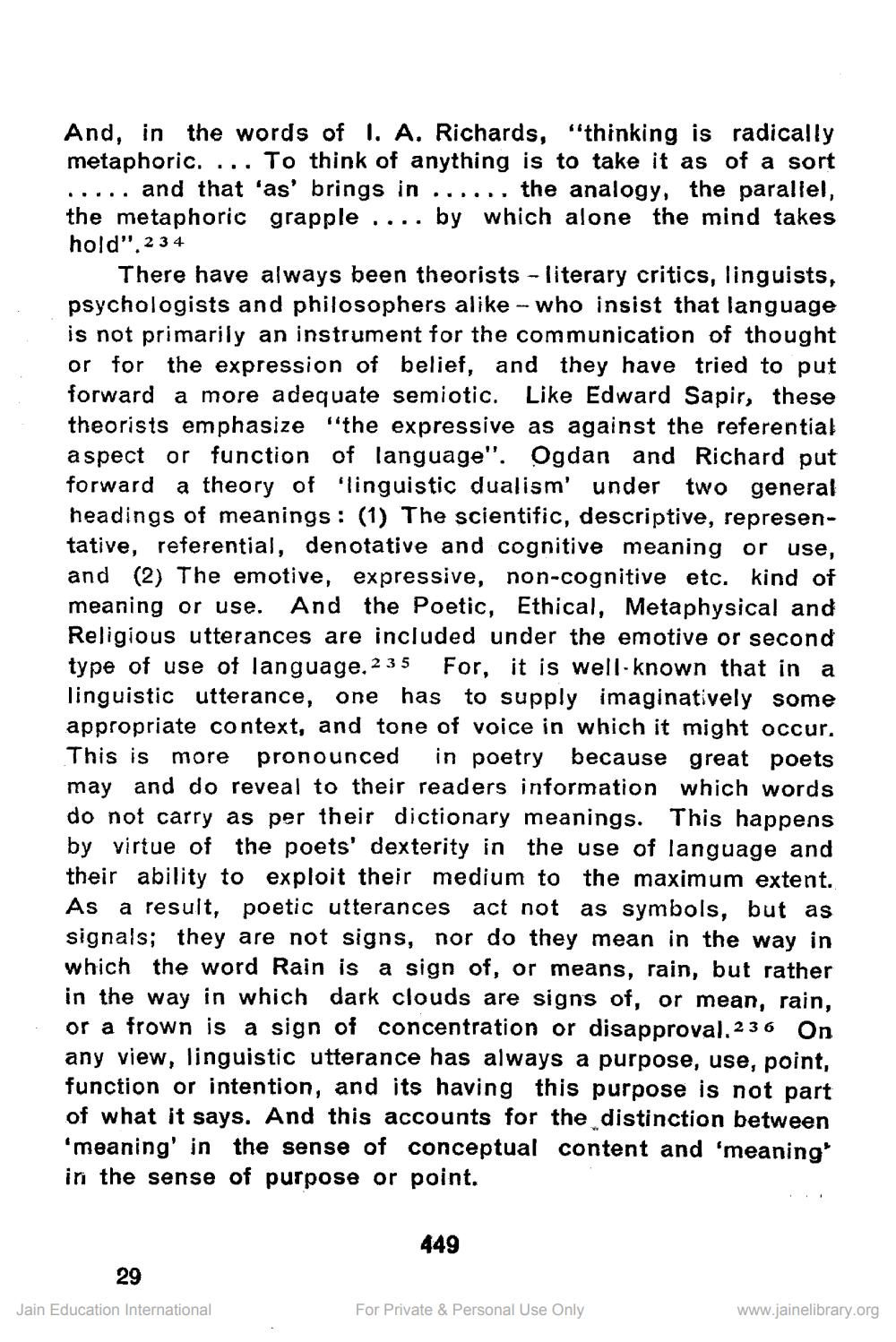________________
And, in the words of I. A. Richards, "thinking is radically metaphoric. ... To think of anything is to take it as of a sort and that 'as' brings in ...... the analogy, the parallel, the metaphoric grapple by which alone the mind takes hold", 234
There have always been theorists - literary critics, linguists, psychologists and philosophers alike - who insist that language is not primarily an instrument for the communication of thought or for the expression of belief, and they have tried to put forward a more adequate semiotic. Like Edward Sapir, these theorists emphasize "the expressive as against the referential aspect or function of language". Ogdan and Richard put forward a theory of linguistic dualism' under two general headings of meanings: (1) The scientific, descriptive, representative, referential, denotative and cognitive meaning or use, and (2) The emotive, expressive, non-cognitive etc. kind of meaning or use. And the Poetic, Ethical, Metaphysical and Religious utterances are included under the emotive or second type of use of language. 235 For, it is well-known that in a linguistic utterance, one has to supply imaginatively some appropriate context, and tone of voice in which it might occur. This is more pronounced in poetry because great poets may and do reveal to their readers information which words do not carry as per their dictionary meanings. This happens by virtue of the poets' dexterity in the use of language and their ability to exploit their medium to the maximum extent. As a result, poetic utterances act not as symbols, but as signals; they are not signs, nor do they mean in the way in which the word Rain is a sign of, or means, rain, but rather in the way in which dark clouds are signs of, or mean, rain, or a frown is a sign of concentration or disapproval. 236 On any view, linguistic utterance has always a purpose, use, point, function or intention, and its having this purpose is not part of what it says. And this accounts for the distinction between 'meaning' in the sense of conceptual content and 'meaning" in the sense of purpose or point.
29
Jain Education International
449
For Private & Personal Use Only
www.jainelibrary.org




